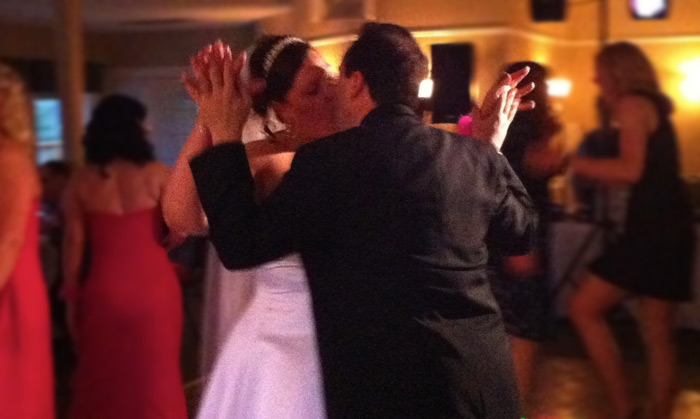
This past weekend, my brother Andy got married. I couldn’t possibly be more excited for he and his wife Melissa!
Marriage is a funny thing: a commitment so profound that in some ways, you can’t possibly understand the scope of it when you make the commitment. How on earth can you envision what it means to spend a lifetime together? How you will each change and grow? The challenges you will each face?
And that is why it is so special – because you couldn’t possibly know, but you make the commitment to find out. From there, the journey is the reward, and no pithy statement can fully encapsulate how the journey of each marriage differs.
People have different views on and experiences with marriage. And they are all right. Right for them.
What I love about the idea of marriage is that you are investing in each other. That you are making a commitment to the future. That you are coming together to do more as a team, than you could on your own.
My brother is 3.5 years older than me, so I have known him my entire life. I’ve seen him at all stages of each of our own journeys – the good, the bad, and everything in between. When I see him with his wife, how they communicate, how they act together, the little nuances and movements, I see him as I have known him for 39 years. I am seeing him as who he is deep down. Just open. Just himself.
And I love seeing that.
My brother now works with me here at We Grow Media, so we chat nearly every day. We spend loads of time discussing the challenges of writers, publishers, and those in media. Too often, these people spend months – YEARS – slaving away on their own. Wresting with unanswered questions. Feeling the weight all on their shoulders. For a writer, they steal time to write their book, and then try to learn how to connect to their audience, and navigate the business of publishing. For someone who works in the publishing industry, they are dealing with massive changes, but often from deep within a single department – a single role – with hard boundaries, where innovation can be slow. There is no roadmap.
There are times when it is useful to “go it alone,” and times when it is not. When you can move further ahead by involving others, not keeping them out until you somehow figured out all the answers yourself.
I am always surprised when a company works hard to uphold a processes that stopped working years ago. They begin to work even harder to uphold the lines that keep them stagnated and struggling – instead of working to evolve more quickly. Or when writers are finding roadblock after roadblock to their own goals, but still think that they must come up with 100% of the answers on their own.
It reminds me of that famous quote: “Insanity: doing the same thing over and over again and expecting different results.”
People often forgo the most powerful resource available to them: other people. A simple email. A simple phone call. Walking up to someone at an event and making a connection. Following up with that connection weeks later over coffee. Basic things that have only become easier to do with the advent of social media.
If you are trying to move past a barrier in your career – trying to reach a goal that seems distant and complicated, then consider not just WHAT you do, WHY you do it, or HOW you approach it, but WHO you enlist to join you on that journey.
Involve others.
Some could be formal partners, or those you hire, or a group you join, or just someone who helps via a single email response – but make this a team effort. Don’t sit in that rowboat in the choppy ocean, all by yourself.
I started teaching three online courses for writers in the past week, and am already seeing the incredible value in how each of the writers are connecting with each other via the forums. Even beyond the class material itself, they are sharing experiences, helping to frame each others challenges, and establishing relationships that will be helpful for years to come. And we are only a week into the course!
If you are out there struggling with something, and think I could help, please feel free to reach out.
Thanks.
-Dan

